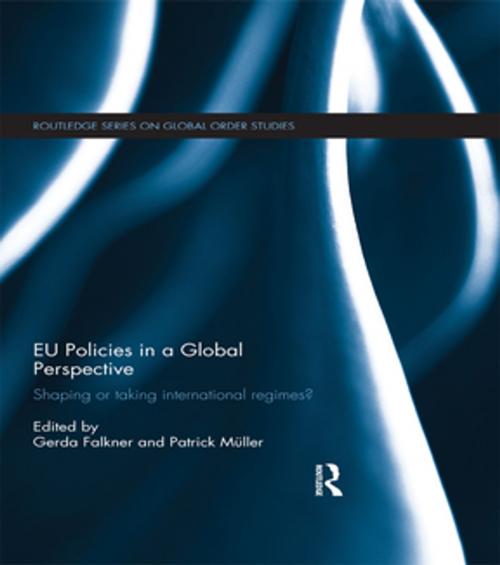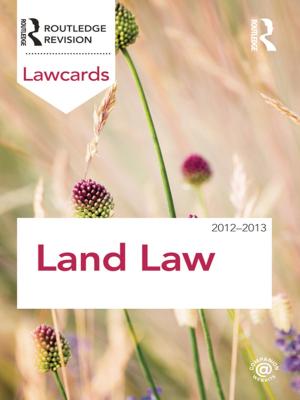EU Policies in a Global Perspective
Shaping or taking international regimes?
Nonfiction, Social & Cultural Studies, Political Science| Author: | ISBN: | 9781317963608 | |
| Publisher: | Taylor and Francis | Publication: | November 20, 2013 |
| Imprint: | Routledge | Language: | English |
| Author: | |
| ISBN: | 9781317963608 |
| Publisher: | Taylor and Francis |
| Publication: | November 20, 2013 |
| Imprint: | Routledge |
| Language: | English |
Recent decades have seen a rise in the significance of governance layers beyond the nation state and even Europe. Nonetheless, few efforts have been made thus far to systematically examine the EU’s interaction with global policy regimes. This book maps the relative importance of EU policies in the multi-level global governance system, in comparison with national and global activities. It provides a unique comparative analysis of the EU’s capacity for projecting its policies outward. Focusing on trade policy, agriculture, food safety, competition, social rights, environmental policy, transport, migration, nuclear non-proliferation, or financial regulation, each chapter contributes to a better understanding of the EU’s role in shaping global policies, the mechanisms it uses and the conditions leading to success or failure.
The contributors’ comparative research highlights that policy export is a demanding phenomenon that faces severe limitations and frequently comes with drawbacks. Still, EU policy export played a key role in shaping the rules of the global trade regime and influenced global policy outcomes – at least to a minor extent or in technical aspects – in the majority of the covered policy areas. Overall however, this book reveals that the EU not only aims to export its policies, but interacts with its global environment in a number of distinct ways, including policy import and policy protection, to shield it from global pressures.
Concluding with a comparison of all policies on the meta-level and relevant policy recommendations, this book will be of interest to students, scholars and practitioners of European politics, European public policy, global governance and international relations.
Recent decades have seen a rise in the significance of governance layers beyond the nation state and even Europe. Nonetheless, few efforts have been made thus far to systematically examine the EU’s interaction with global policy regimes. This book maps the relative importance of EU policies in the multi-level global governance system, in comparison with national and global activities. It provides a unique comparative analysis of the EU’s capacity for projecting its policies outward. Focusing on trade policy, agriculture, food safety, competition, social rights, environmental policy, transport, migration, nuclear non-proliferation, or financial regulation, each chapter contributes to a better understanding of the EU’s role in shaping global policies, the mechanisms it uses and the conditions leading to success or failure.
The contributors’ comparative research highlights that policy export is a demanding phenomenon that faces severe limitations and frequently comes with drawbacks. Still, EU policy export played a key role in shaping the rules of the global trade regime and influenced global policy outcomes – at least to a minor extent or in technical aspects – in the majority of the covered policy areas. Overall however, this book reveals that the EU not only aims to export its policies, but interacts with its global environment in a number of distinct ways, including policy import and policy protection, to shield it from global pressures.
Concluding with a comparison of all policies on the meta-level and relevant policy recommendations, this book will be of interest to students, scholars and practitioners of European politics, European public policy, global governance and international relations.















